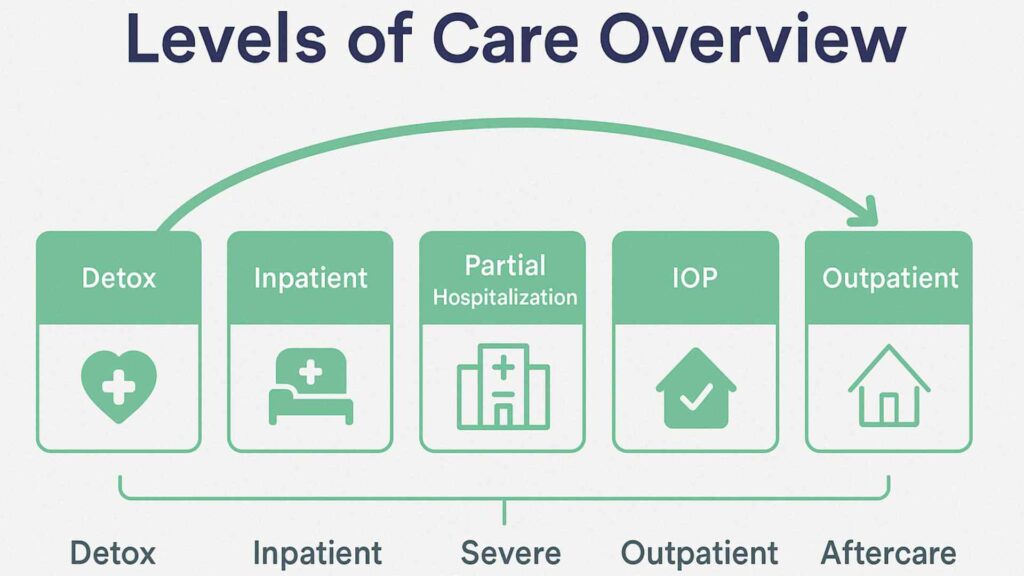Staging an intervention is one of the most meaningful steps a family can take when a loved one is struggling with substance use disorder. It is a carefully planned conversation where family members, friends, and sometimes a professional interventionist come together to help the person recognize the severity of their substance use and accept treatment. Choosing the right moment increases the likelihood that your loved one will be receptive, cooperative, and willing to seek help.
This article explains how to plan it strategically, and why acting sooner rather than later often leads to better recovery outcomes.

Recognizing the Signs It’s Time for an Intervention
Knowing when to intervene can be difficult, especially when emotions are intense. Families often reach this point after noticing escalating health, safety, and relationships risks. If a loved one’s physical health is declining, such as frequent illness, unexplained injuries, or hospital visits, it may be a sign that substance use is becoming life-threatening. Risky behaviors, including driving under the influence, overdosing, or legal trouble, also signal that waiting could lead to irreversible harm.
In many cases, addiction begins to disrupt daily life long before a person is ready to acknowledge the problem. They may miss work or school, neglect responsibilities, or withdraw from family and friends. Repeated failed attempts to stop using substances, despite sincere promises, can show that professional help is needed. Families who feel emotionally drained or fearful may also recognize that they have exhausted other ways of offering support.
Why You Don’t Need to Wait for “Rock Bottom”
Many families hesitate to act because they believe their loved one must “hit rock bottom” before they will accept addiction treatment. However, being at an all-time low can sometimes mean losing a job, home, or even suffering a life-threatening event such as an overdose.
Modern research shows that early intervention often leads to more positive outcomes because it stops the cycle of addiction before consequences become catastrophic. Acting sooner protects your loved one’s health, preserves relationships, and prevents further damage to their well-being.
How to Choose the Right Time for an Intervention
Once you’ve recognized the need for a professional intervention service, timing the conversation thoughtfully is essential. Choosing a time when your loved one is sober and able to focus helps them process the conversation without defensiveness or confusion. It is also important to coordinate with all participants in advance, ensuring that each person is available and emotionally prepared to contribute in a supportive way.
Another key step is securing treatment options ahead of time. By confirming a place at a treatment center before holding the mediation, you eliminate delays that could allow your loved one to change their mind. The meeting itself should take place in a private and comfortable setting where your loved one will feel safe and respected.
Common Timing Mistakes to Avoid
Holding the conversation while the person is under the influence can lead to defensiveness, confusion, or outright refusal. Similarly, rushing into an interference without adequate preparation may allow emotions to escalate, turning the meeting into an argument rather than a constructive dialogue.
Waiting too long can be equally harmful. Families that postpone action out of fear or uncertainty may find themselves dealing with worsening addiction and more severe consequences. Another common pitfall is proceeding despite unresolved conflict among family members. A unified, calm approach is crucial; otherwise, the intervention can feel like an ambush and push the person further away.

Planning and Executing a Well-Timed Intervention
Each participant should prepare what they want to say in advance, focusing on specific examples of how addiction has caused harm rather than using blame or judgment. Rehearsing the conversation as a group can help participants stay calm and focused, even if the person reacts with anger or denial.
Working with a professional interventionist can be invaluable in these situations. Those experts guide the process, help de-escalate emotional moments, and ensure the conversation remains respectful and solution-focused. Once the mediation is complete, immediate follow-through is essential. Having transportation ready and taking your loved one directly to treatment increases the likelihood that they will follow through on their agreement to get help.
What to Do After the Intervention
The period following an intervention is critical, regardless of whether your loved one accepts treatment. If they agree, they should begin care as quickly as possible to build on the momentum created by the medical help. If they refuse, the family needs to maintain the boundaries and expectations set during the meeting while continuing to offer support when the person is ready to seek help.
Even if an intervention does not result in immediate treatment, it often serves as a wake-up call that plants the seed for future change. Staying consistent, compassionate, and prepared for the next opportunity can eventually lead to a successful outcome.
Final Thoughts from Abundance Treatment
The best time to stage an intervention is when addiction is actively causing harm — not when a crisis leaves no other option. Acting early, preparing thoughtfully, and working with experienced professionals can significantly increase the chances that a loved one will accept help and begin the path to recovery.
At Abundance Treatment, we offer a structured intervention service in Toledo, OH, designed to support families through this difficult process. Our team helps you plan and conduct a conversation that is compassionate, respectful, and strategically effective. Guided by trained professionals, these interventions transform fear and frustration into a clear, hopeful call to action — encouraging your loved one to recognize the need for treatment and take the first step toward lasting change.




































